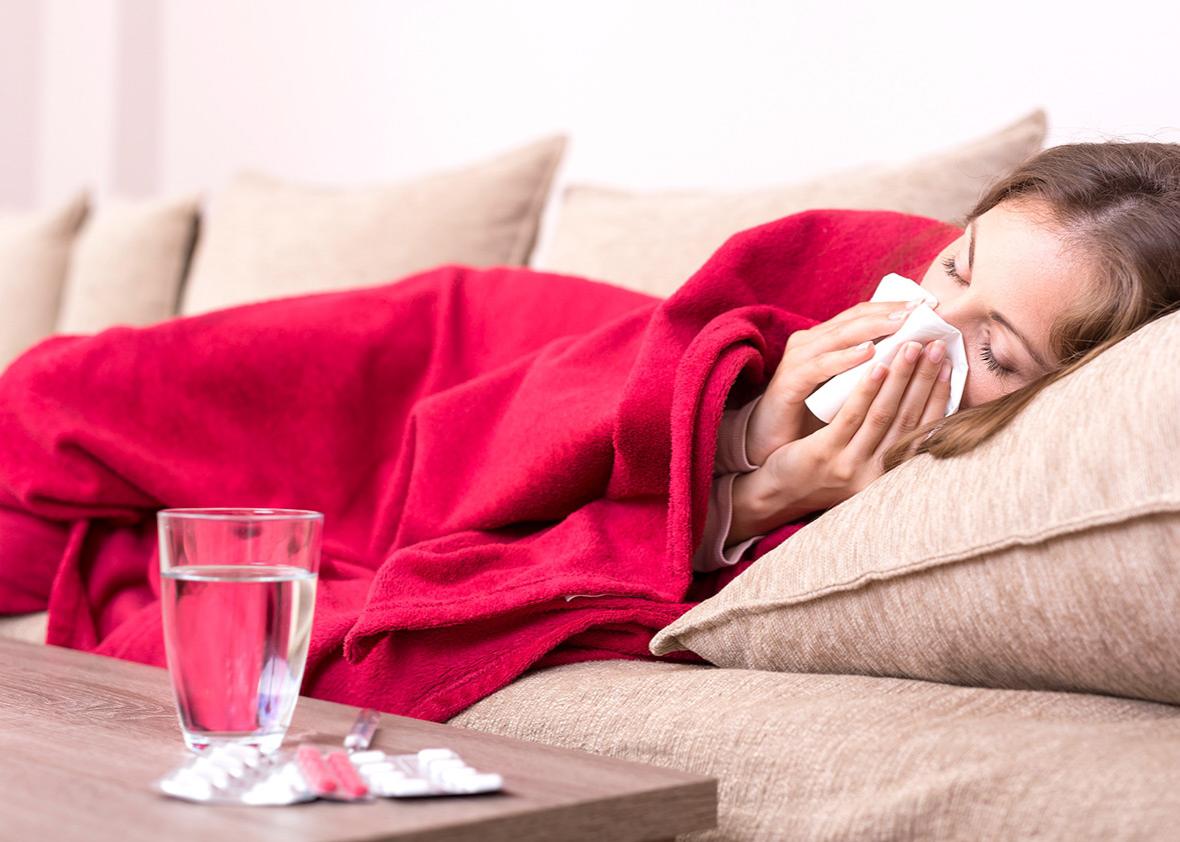Flu season is upon us, which means emergency departments all over the globe are dealing with an overwhelming number of patients with flu and flulike symptoms. In a bilateral attempt at self-interest and social good, we, your friendly emergency department doctors, would like to give you some advice on how to manage this time of year.
First up, and most important: It’s not too late to get the flu shot. Flu season lasts through April. Of the four strains in the flu shot, one of them is only 10 percent effective; the other three are more than 70 percent effective. That’s normal, and the shot is definitely worth getting. If you end up getting the flu anyway, the flu shot alters the course of the disease (in most cases) and makes it less nasty.
Another reason to get the flu shot is that lots of people (like cancer patients and transplant recipients) are at high risk during flu season. You don’t know who they are, but you could protect them by getting the shot. And if you do get sick, act like everyone is at risk. Stay home. Stay hydrated. Stay in bed. Use hand sanitizer. Sneeze into your elbow. You may save someone’s life.
What if you get really sick? We are always willing and able to see patients in the emergency department. That is our job. But you will likely have to wait. Some departments are seeing a two-hour wait for triage, then a wait for the doctor, a wait for the diagnosis, and a final wait to be discharged.
You’re going to be really annoyed, if after spending 12 hours waiting in the ER, we just say “you have the flu, go home.” But that’s all we’ll be able to say to you. Because we cannot cure the flu. It is a virus. We can try to make you feel better. But lots of the things we do for the flu, you can do at home. Flu care mostly consists of supportive measures like fluids and rest and over-the-counter medications.
Ibuprofen (like Motrin) usually makes people feel better than Tylenol. “Prescription strength” ibuprofen is 800 mg (four over-the-counter 200 mg tablets) taken every eight hours, and that’s the best thing to take, unless you have an ulcer. Take with food or milk or an antacid.
If you cannot hold anything down, we can give you IV fluids and anti-nausea medicine.
You may have heard of Tamiflu, the flu medicine. Tamiflu reduces symptoms by an average of one to one and a half days and can have side effects. It is also ineffective after 24 to 48 hours of symptom onset. We will give it to you if we think you really need it, but if we don’t give it, trust us that it’s because it’s not going to help you.
Do not request a Z-Pack. Antibiotics do not help a virus and risk giving you antibiotic-associated diarrhea, and you don’t want that.
You may have heard of other people receiving more interventions for the flu. It’s definitely possible. If you are younger than 3 months or older than 75, or immunocompromised in some way (cancer, autoimmune disease, advanced HIV/AIDS), you might get an X-ray, since you’re susceptible to complications. We promise you will get an X-ray if we think you need it.
If you have underlying lung disease, such as COPD or emphysema, you may get an X-ray and an antibiotic, because you’re at higher risk of getting bacterial pneumonia. Again, trust us, we’re doctors.
There are other ways to get help beyond an unsatisfying trip to the emergency department. Here are our best suggestions:
- Call your primary care doctor. Often your primary care doctor can offer advice over the phone or get you in her office. Give your doctor a chance to take care of you!
- Urgent care centers: Wait times are considerably less at urgent care centers than emergency departments, and they’re usually able to estimate times over the phone. Many can administer all the treatments described above, even the IV fluids and X-rays.
- Telemedicine: Consider finding out if your insurance pays for telemedicine services. This is a perfect use of telemedicine, and you won’t be exposing anyone else to the flu.
To everyone reading this: Pay it forward. Instead of getting stuck with a bill for an emergency department visit you likely do not need, donate what would have been your co-pay to your favorite charity. We promise it will make you feel better than anything we can do for you in the ED.
